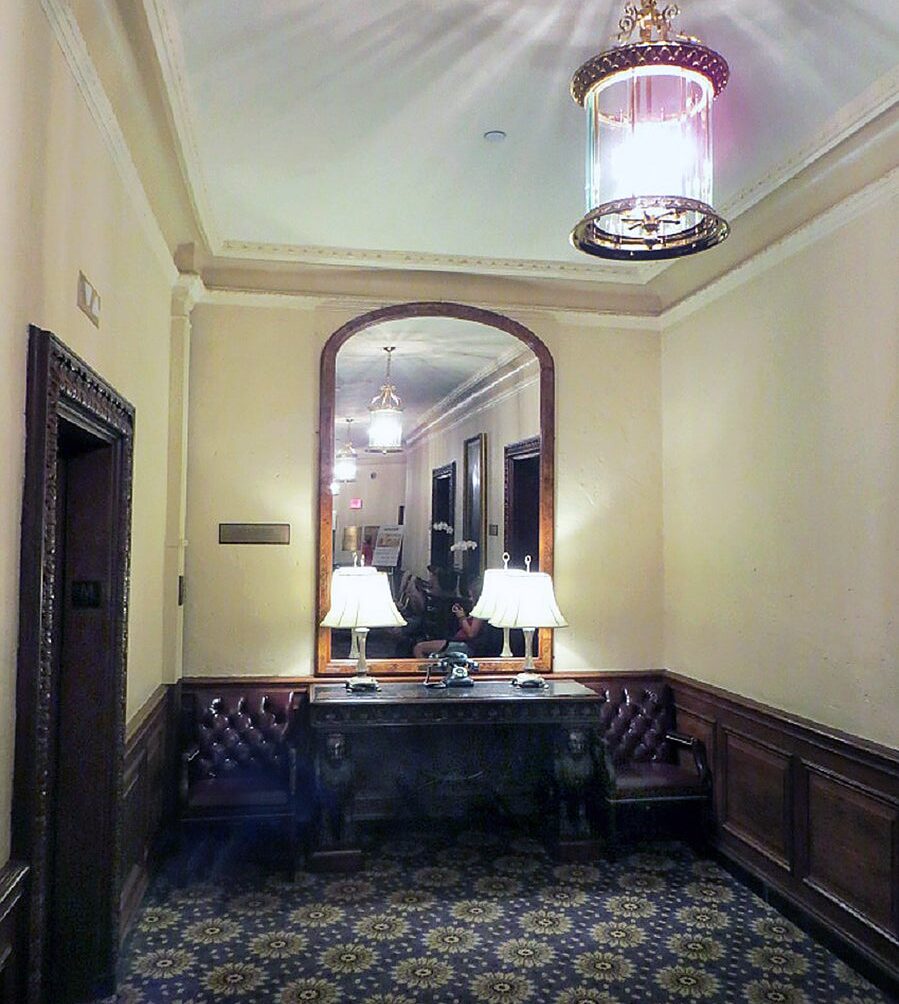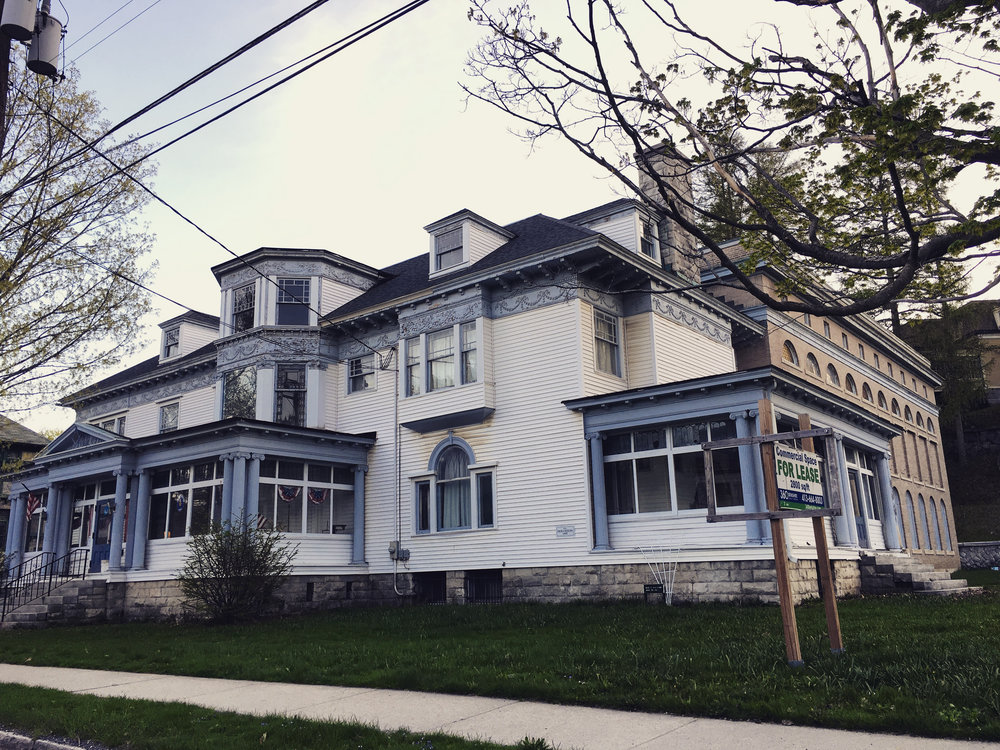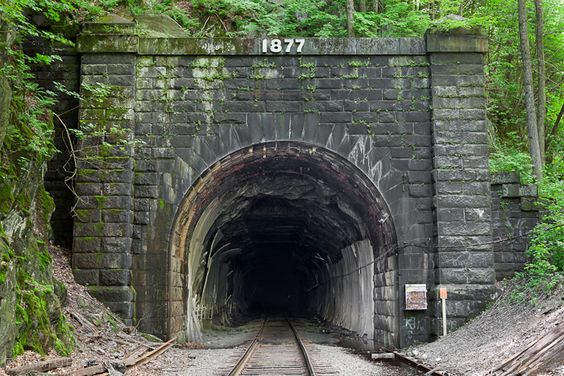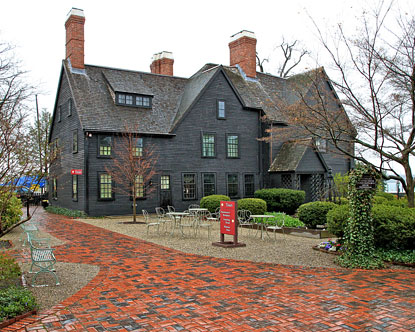Over the years, Omni Parker House has developed a notorious reputation for being one of the most haunted hotels in Maine. Countless guests who have checked in to the historic hotel have reported inexplicable events happening along the hallways as well as the rooms.
Guests staying on the tenth floor have also claimed to have heard the creaking sound of a rocking chair echoing through the rooms. However, Parker House have removed rocking chairs in all its guest rooms since the early 20th century. Floating orbs can also be seen zooming along the corridor before disappearing into the walls.
The third floor of the hotel is also said to be a hotspot for paranormal activities. An elevator is known to stop on the floor even though no button was pushed or no one was on the floor. Some believe that it may have been the spirit of American stage actress Charlotte Cushman. Cushman died of pneumonia in her room on the third floor after a long-lasting with cancer.
The most famous resident ghost at the hotel is none other than founder Harvey Parker. Several guests have reported being directed by a gentleman with a beard in the common areas of the hotel, only to find a portrait of the same man with the painting titled “Harvey D. Parker, founder of the Parker House Hotel”. Parker was also frequently sighted on the tenth floor in full form. On one occasion, a mother-daughter pair was staying in Room 1012 when a man believed to Parker appeared in front of the pair and asked “Are you enjoying your stay at the Parker House?”
“….There were many stories, but one in particular happened around 1950. An elderly woman guest insisted she saw an apparition outside room 1078. At first it was a misty apparition in the air, then it turned toward her. She said it was a heavy-set older man with a black moustache. He just looked at her, then faded away. She came downstairs, a bit jittery, and security went up to the tenth floor. They checked it out, but reported they could find nothing.’”
– Excerpt from Heaven, by Hotel Standards: The History of the Omni Parker House, book by Susan WIlson
Omni Parker House and the Haunted Mirror
The famous Omni Parker House haunted mirror is said to be the one in Charles Dickens’ third floor suite where he lived in for five months between 1867 and 1868. Dickens was said to have spent endless hours practising “A Christmas Carol” in front of the mirror before his first public recital of the novella in a monthly meeting at the Saturday Club.
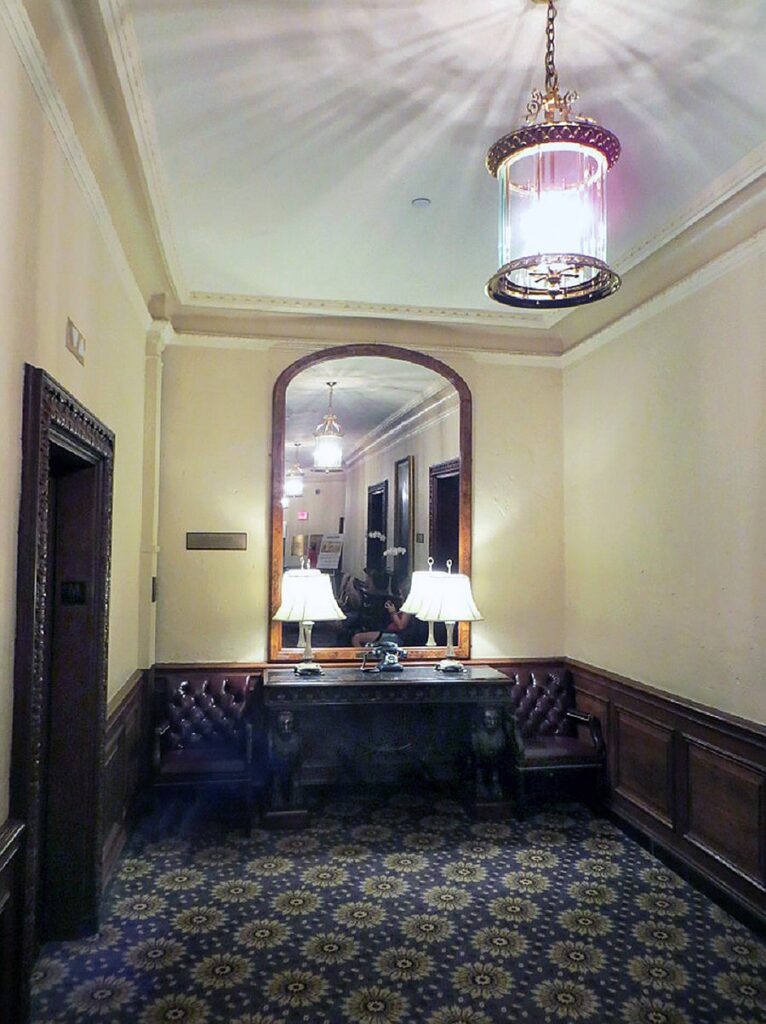
The four-feet wide and six-feet tall mirror is now said to be haunted by the ghost of Charles Dickens. Guests who have peered into the haunted mirror have reported entering a daze and seeing a dark figure in the reflection. Rumor also say that visitors who say “Charles Dickens” three times in front of the mirror will lead to the manifestation of Charles Dickens himself.
The haunted mirror is located in a hallway on the mezzanine floor where the “Dickens Room” is. The door to his suite was also salvaged from the demolition in the mid-1920s and is now encased in glass and on display in the hotel’s history gallery.
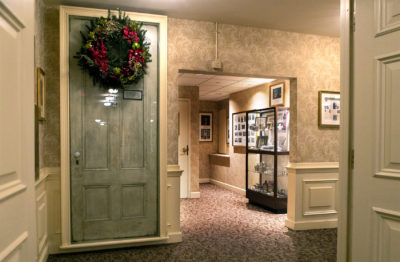
Omni Parker House Room 303
Room 303 is said to be the most “active” room in the entire hotel. Legend has it that a businessman who was facing financial difficulties checked into the room for an extended stay. Distraught and unwilling to face the reality, he took his last puff of cigar and committed suicide in Room 303. After his death, guests who have stayed in Room 303 have reported inexplicable events such as the disembodied voice of a man, the faint smell of cigar, and loud bangings on the door in the middle of the night.
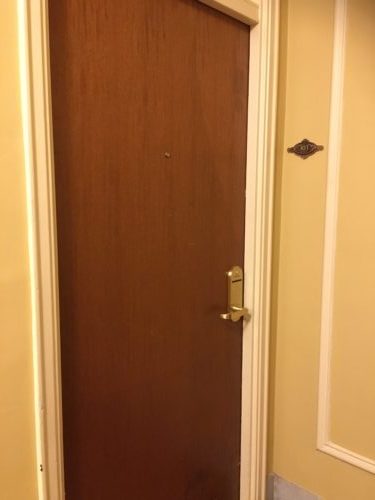
It was claimed that Stephen King’s 1999 horror short story 1408 was inspired by his experience staying in room 303 of the Parker House. However, as with the same claim about room 441 at Congress Plaza Hotel, it was widely debated by local historians. King’s personal assistant have also came forward to debunk the rumor.
Due to the large number of complaints by guests, the hotel management have decided to close Room 303 to the public. It has since been converted into a storage space for housekeeping items.
A Brief History of Omni Parker House
The history of Omni Parker House dates back to 1855 when it opened on the corner of Tremont Street and School Street. It was founded Maine-born hotelier Harvey D. Parker and designed by architect William Washburn.
As Parker House was a short distance away from the Massachusetts state government office, the hotel became a popular gathering spot for local politicians. The hotel was also the place of meeting for the Saturday Club, an informal club that consist of many notable writers, scientists and philosophers. Every Saturday of the month, members of the group including Ralph Waldo Emerson, Nathaniel Hawthorne, John Greenleaf Whittier, Dr. Oliver Wendell Holmes, and James Russell Lowell, would gather at Parker House where they would actively discuss upon historical, literary, scientific and artistic topics.
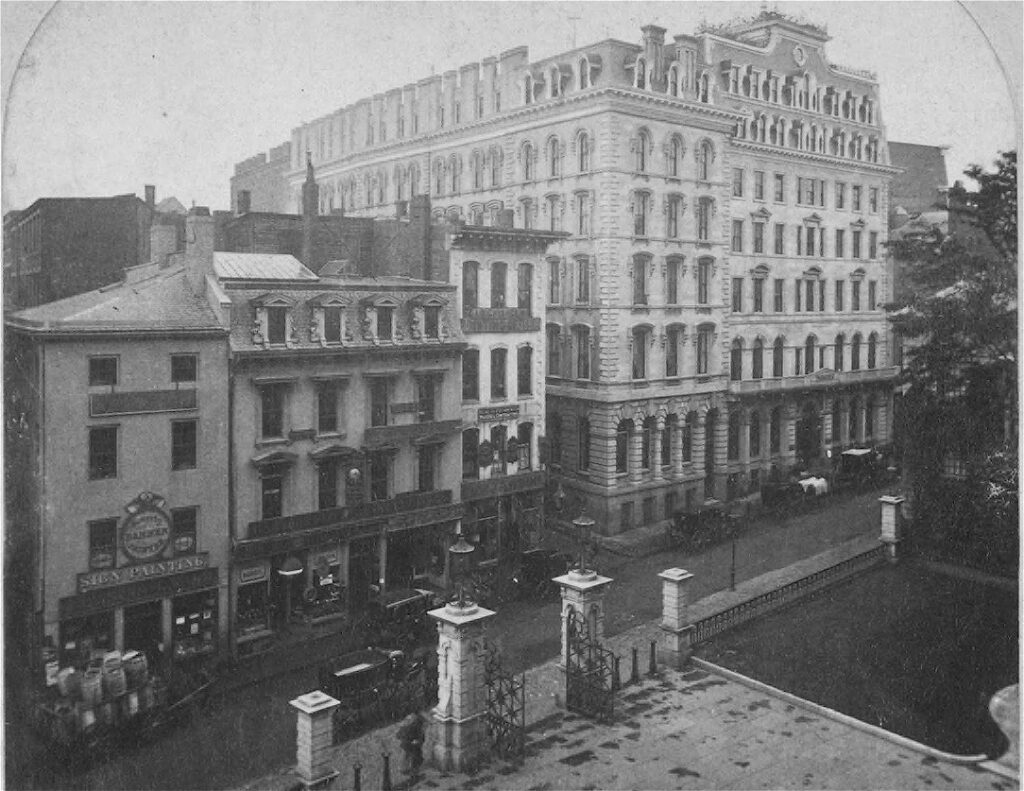
Apart from being the meeting place of the Saturday Club, the hotel was also known to be the choice of accommodation for many notable figures. It includes John F. Kennedy, Charles Dickens, Mark Twain, and more recently, Elizabeth Montgomery, Jimmy Carter, Muhammad Ali and Bill Clinton. John Wilkes Booth was also said to have stayed in Parker House for a week before his assassination of then-President Abraham Lincoln on April 14, 1865; witnesses have reported seeing him at a nearby shooting range (presumably Roland Edwards’ Pistol Gallery) and practicing pistol firing in many difficult positions.
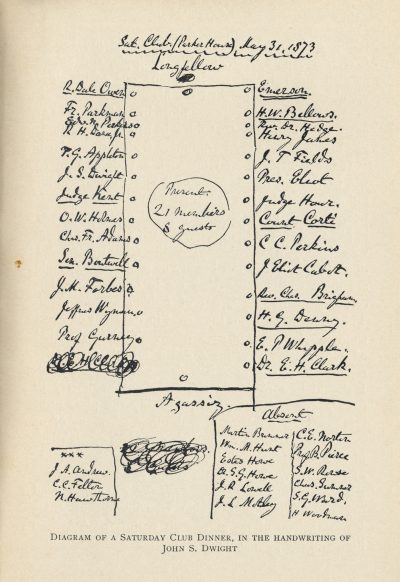
The Parker House hotel has also led the front in the adoption of the European Plan, a hotel plan whereby the quoted daily rates covers only the cost of lodging. Prior to the introduction of the plan, hotels in the United States mostly offered a packaged rate that included the room and meals.
In 1860, the hotel embarked on an expansion plan, increasing in size and adding new stories to the original building. However, the building and its addition were all demolished in the mid 1920s to make way for a new Park House. The new Park House opened in 1927 with a modern building that we see today.
Parker ran the hotel till 1884 when he passed away at the age of 80. He was buried at Mount Auburn Cemetery, the burial site of many prominent Boston figures. After his passing, the hotel was transferred to the firm Harvey D. Parker & Co owned by Parker’s business partners Edward O. Punchard and Joseph H. Beckman. The hotel changed hands several times over the next few decades. In 1969, it was purchased by the Dunfey family, who collectively owned over a dozen hotels and restaurants in New England. The Parker House underwent a multi-million facelift under the management of Dunfey and was reinvented as a contemporary accommodation of choice in the city.
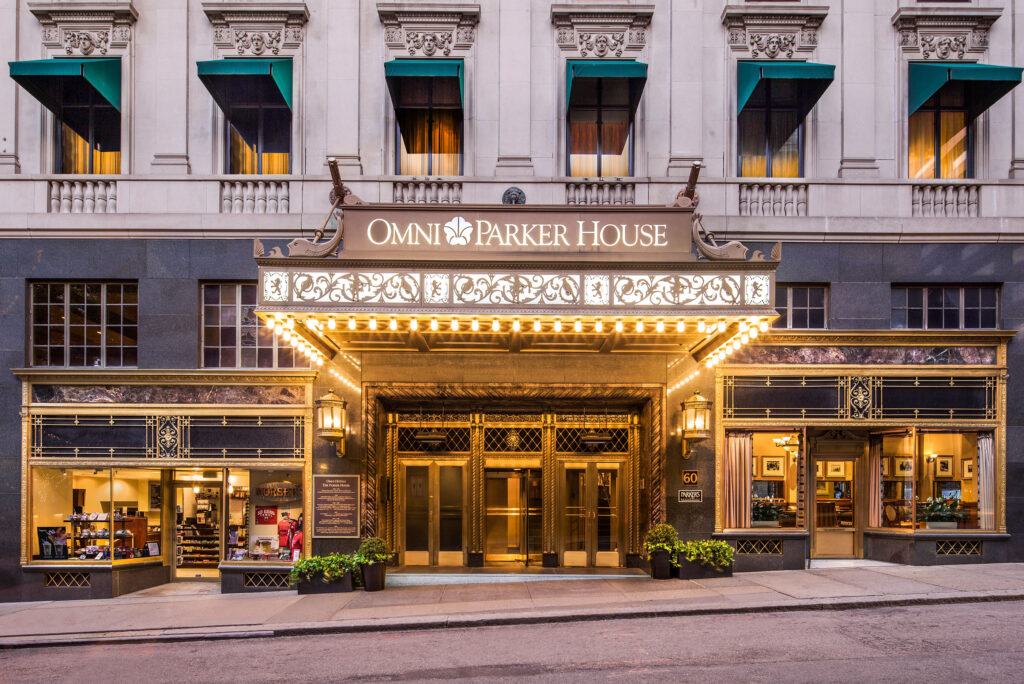
The hotel was eventually transferred to the Omni Hotels division (also owned by the Dunfey family) and renamed to Omni Parker House.
Today, the 551-bed Omni Parker House is a record-holder for being longest continuously operating hotel in the United States. It is also a member of Historic Hotels of America, the official program of the National Trust for Historic Preservation.

